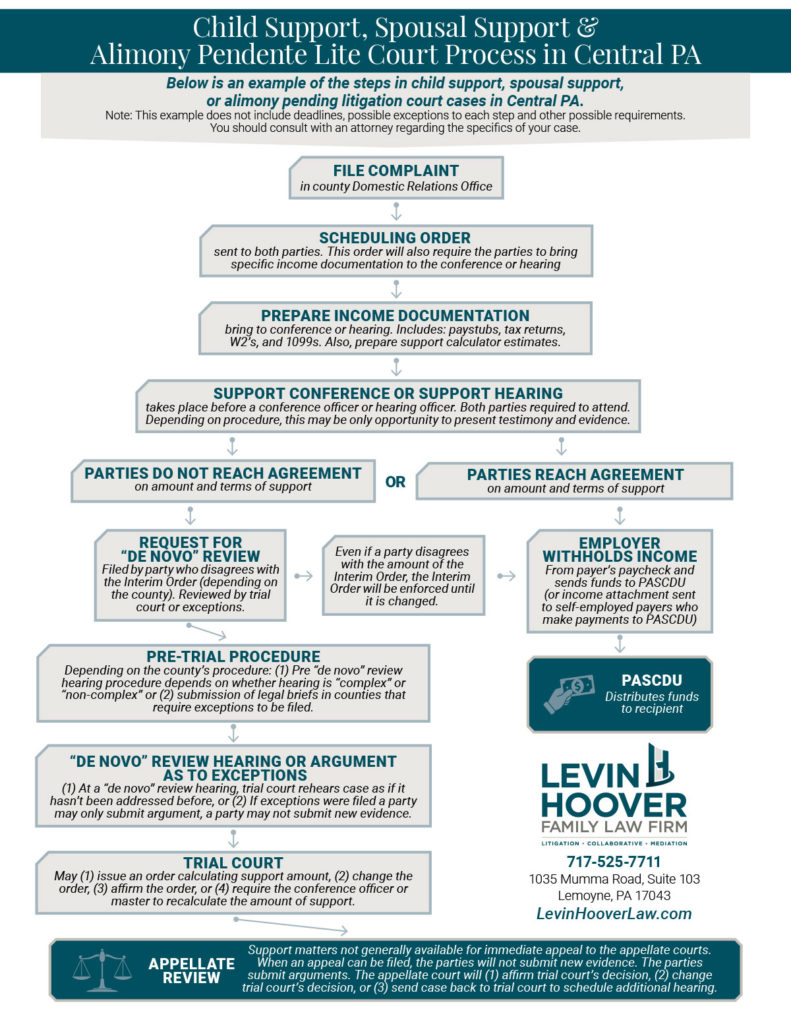Child Support, Spousal Support, and Alimony Pendente Lite Court Process in Central Pennsylvania

Below is an example of the steps in child support, spousal support, or alimony pending litigation court cases in Central Pennsylvania.
Note: This example does not include deadlines, possible exceptions to each step and other possible requirements. You should consult with an attorney regarding the specifics of your case.
TEXT ONLY VERSION
File Complaint
In county Domestic Relations Office
Scheduling Order
Sent to both parties. This order will also require the parties to bring specific income documentation to the conference or hearing.
Prepare Income Documentation
Bring to conference or hearing. Includes: paystubs, tax returns, W2’s, and 1099s. Also, prepare support calculator estimates.
Support Conference or Support Hearing
Takes place before a conference officer or hearing officer. Both parties required to attend. Depending on procedure, this may be only opportunity to present testimony and evidence.
Parties do not reach agreement
OR
Parties reach Agreement
on amount and terms of support
Request for “de novo” review
Filed by party who disagrees with the Interim Order (depending on the county). Reviewed by trial court or exceptions
Even if a party disagrees with the amount of the Interim Order, the Interim Order will be enforced until it is changed.
Employer Withholds Income
From payer’s paycheck and sends funds to PASCDU ( or income attachment sent to self-employed payers who make payments to PASCDU)
Pre-trial Procedure
Depending on the county’s procedure: (1) Pre “de novo” review hearing procedure depends on whether hearing is “complex” or “non-complex” or (2) submission of legal briefs in counties that require exceptions to be filed.
“De Novo” Review Hearing or Argument as to Exceptions
- At a “de novo” review hearing, trial court rehears case as if it hasn’t been addressed before, or (2) If exceptions were filed a party may only submit argument, a party may not submit new evidence.
PASCDU
Distributes funds to recipient
Trial Court
May (1) issue an order calculating support amount, (2) change the order, (3) affirm the order, or (4) require the conference officer or master to recalculate the amount of support.
Appellate Review
Support matters not generally available for immediate appeal to the appellate courts. When an appeal can be filed, the parties will not submit new evidence. The parties submit arguments. The appellate court will (1) affirm trial court’s decision, (2) change trial court’s decision, or (3) send case back to trial court to schedule additional hearing.



